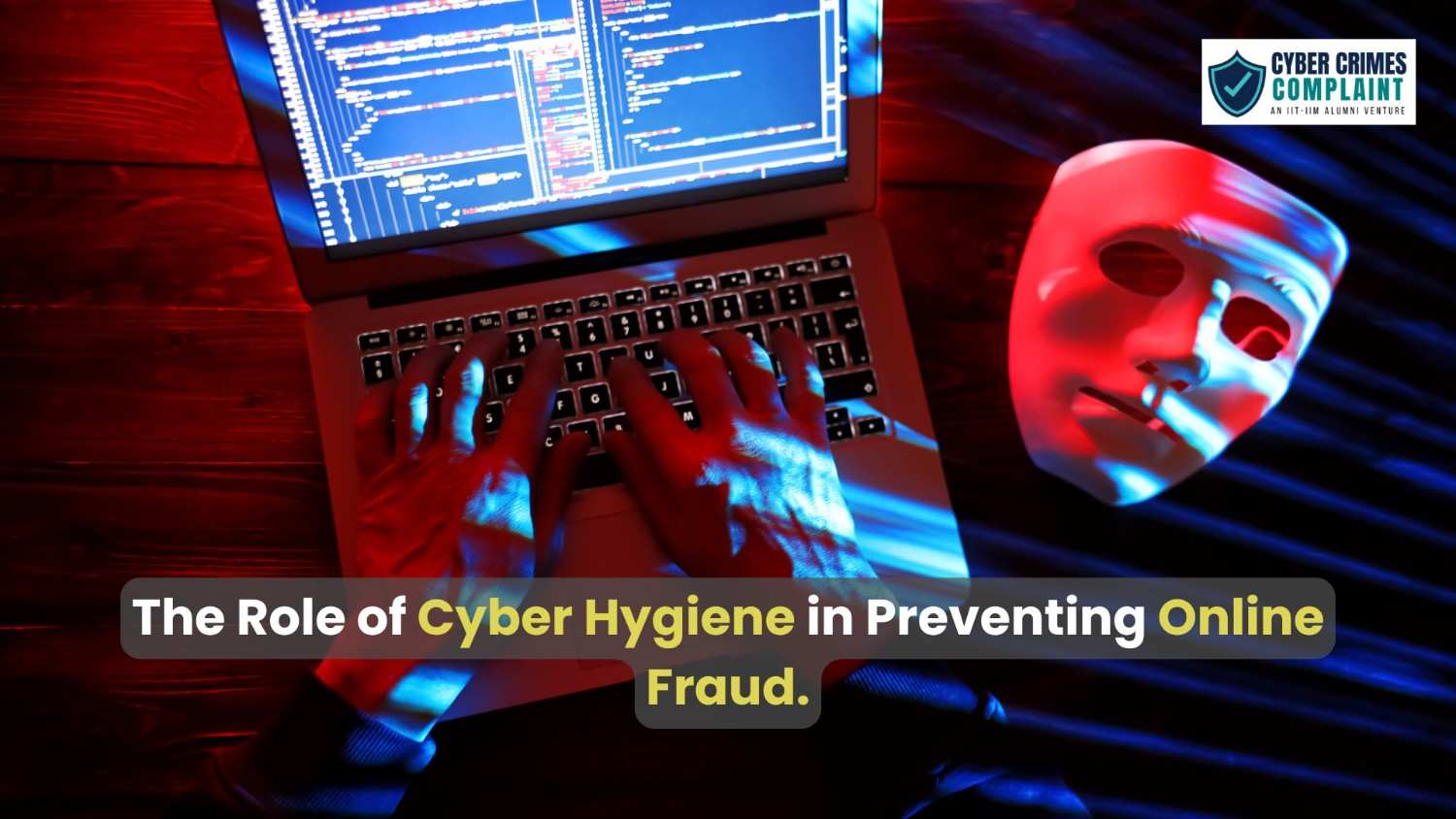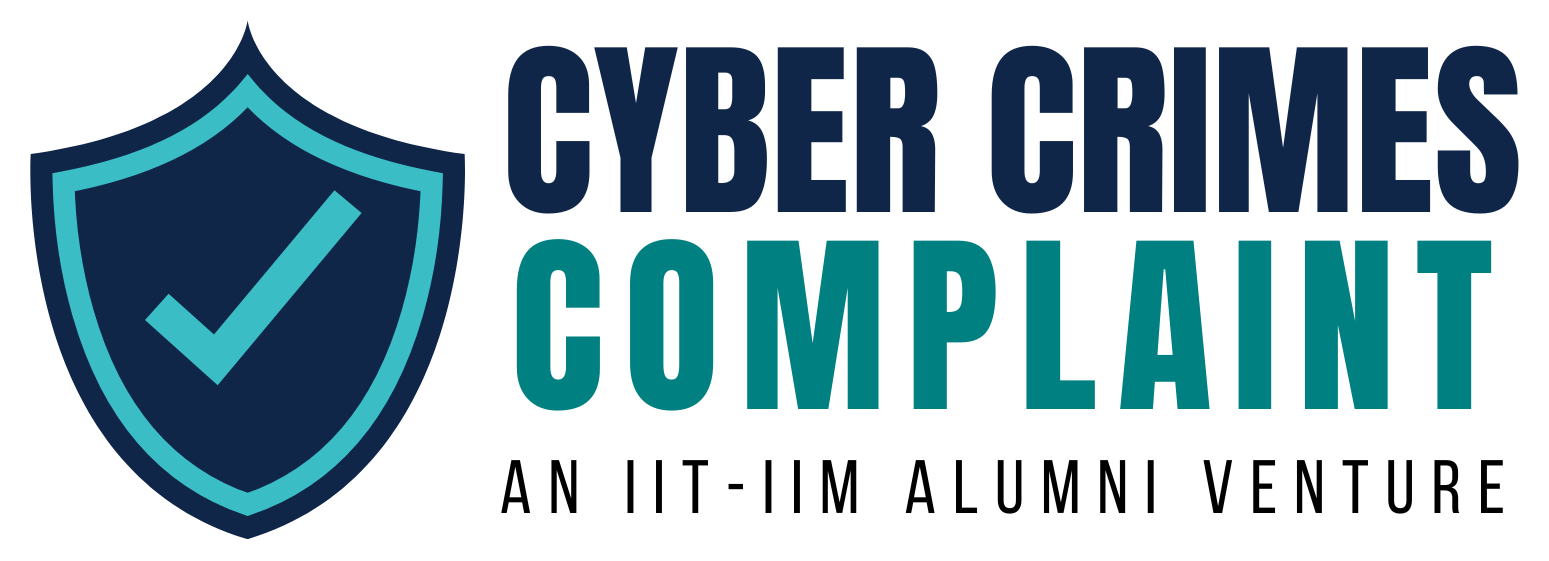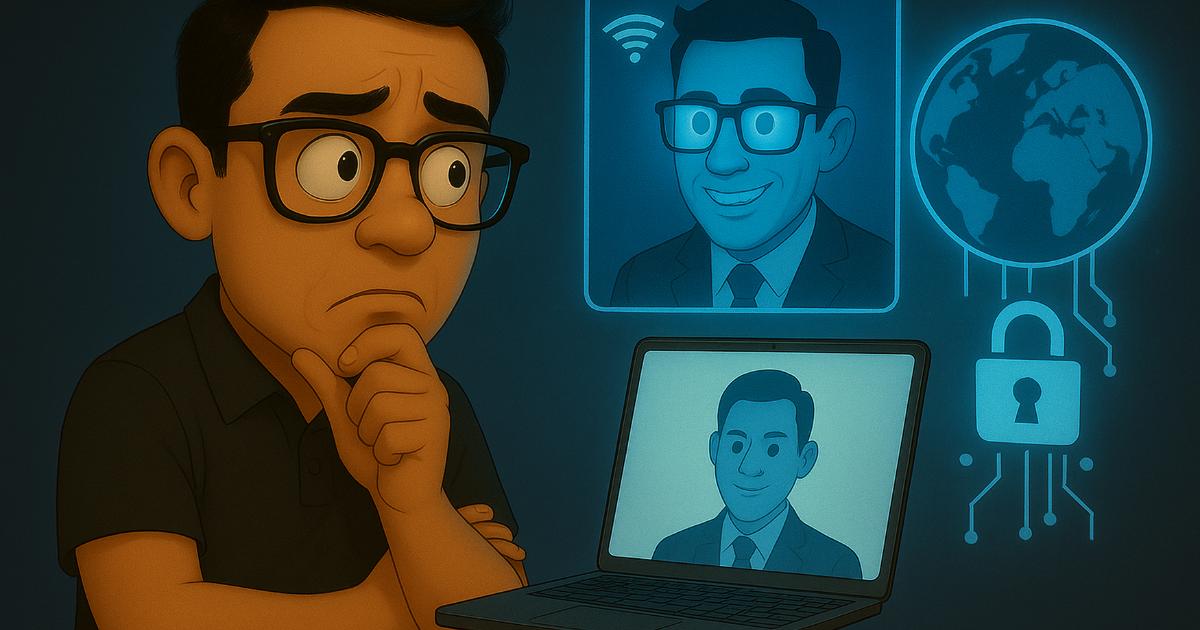· Online Fraud · 4 min read
The Role of Cyber Hygiene in Preventing Online Fraud | Stay Secure
Learn how cyber hygiene practices like strong passwords, software updates, and secure browsing can prevent online fraud. Stay safe in the digital world!

In today’s digital world, staying safe online is more important than ever. Cyber hygiene refers to the practices and habits that help individuals and businesses protect themselves from online threats. Just like personal hygiene keeps you healthy, cyber hygiene safeguards your digital life from fraudsters and hackers.
For expert guidance on cyber fraud prevention and legal support, visit CyberCrimesComplaint.com, your trusted source for cybersecurity assistance.
What is Cyber Hygiene?
Cyber hygiene includes regular security measures like using strong passwords, keeping software updated, and being cautious about sharing personal information online. It is a proactive approach to preventing cyber threats before they can cause harm.
Common Cyber Threats Leading to Online Fraud
Cybercriminals use various methods to exploit weak security practices. Some of the most common cyber threats include:
Phishing attacks – Fraudulent emails or messages trick users into revealing personal information.
Malware and ransomware – Malicious software can steal data or lock files until a ransom is paid.
Identity theft – Hackers use stolen information to impersonate individuals and commit fraud.
Social engineering scams – Fraudsters manipulate people into divulging sensitive information.
Essential Cyber Hygiene Practices
To protect yourself from cyber threats, follow these best practices:
Use strong and unique passwords for each account.
Enable multi-factor authentication (MFA) for added security.
Keep your software and operating system updated to patch security vulnerabilities.
Avoid clicking on suspicious links or downloading unknown attachments.
The Role of Password Management in Cyber Hygiene
Passwords are the first line of defense against hackers. Use password managers to store and generate strong passwords. Change passwords regularly and avoid using predictable combinations.
Secure Browsing Practices
Always look for HTTPS in website URLs.
Avoid entering sensitive information while using public Wi-Fi.
Use a VPN for added security, especially when accessing financial accounts.
Email and Communication Safety
Emails are a common entry point for cybercriminals. Stay safe by:
Recognizing phishing emails and avoiding clicking on suspicious links.
Checking sender details to prevent email spoofing.
Never sharing sensitive information via email.
Protecting Personal Information Online
Limit sharing personal details on social media.
Use privacy settings to control what information is visible.
Be cautious about friend requests or messages from unknown users.
Device Security and Safe Usage
Install antivirus software and keep it updated.
Regularly update your operating system and apps.
Avoid downloading software from untrusted sources.
How Businesses Can Promote Cyber Hygiene
Businesses should educate employees on cybersecurity best practices. Implementing strong policies and incident response plans can minimize risks.
The Connection Between Cyber Hygiene and Financial Security
Poor cyber hygiene can lead to financial loss through fraudulent transactions or identity theft. Always use secure payment methods and enable alerts for suspicious account activity.
Legal Implications of Poor Cyber Hygiene
Neglecting cyber hygiene can result in data breaches, leading to legal penalties and compliance violations. Stay updated with cybersecurity laws to protect your organization.
Future Trends in Cyber Hygiene
With advancements in AI and blockchain, cybersecurity is becoming more sophisticated. Businesses and individuals must keep up with these technologies to stay ahead of cybercriminals.
Challenges in Maintaining Cyber Hygiene
Despite best efforts, common mistakes like reusing passwords or falling for scams still happen. Awareness and continuous learning are key to staying secure.
Conclusion
Practicing good cyber hygiene is essential to preventing online fraud. By following basic security measures, staying informed about threats, and using advanced tools, you can safeguard your digital presence.
For legal support and cybercrime complaint assistance, visit CyberCrimesComplaint.com, where expert help is just a click away.
FAQs
What is the easiest way to improve cyber hygiene?
Regularly updating passwords, enabling MFA, and keeping software up to date.How does cyber hygiene prevent financial fraud?
It reduces the risk of identity theft, phishing scams, and unauthorized transactions.Are password managers safe to use?
Yes, reputable password managers use strong encryption to secure your credentials.Why is multi-factor authentication important?
It adds an extra layer of security by requiring additional verification beyond just a password.Can businesses suffer legal consequences for poor cyber hygiene?
Yes, data breaches due to negligence can result in legal actions and compliance fines.


